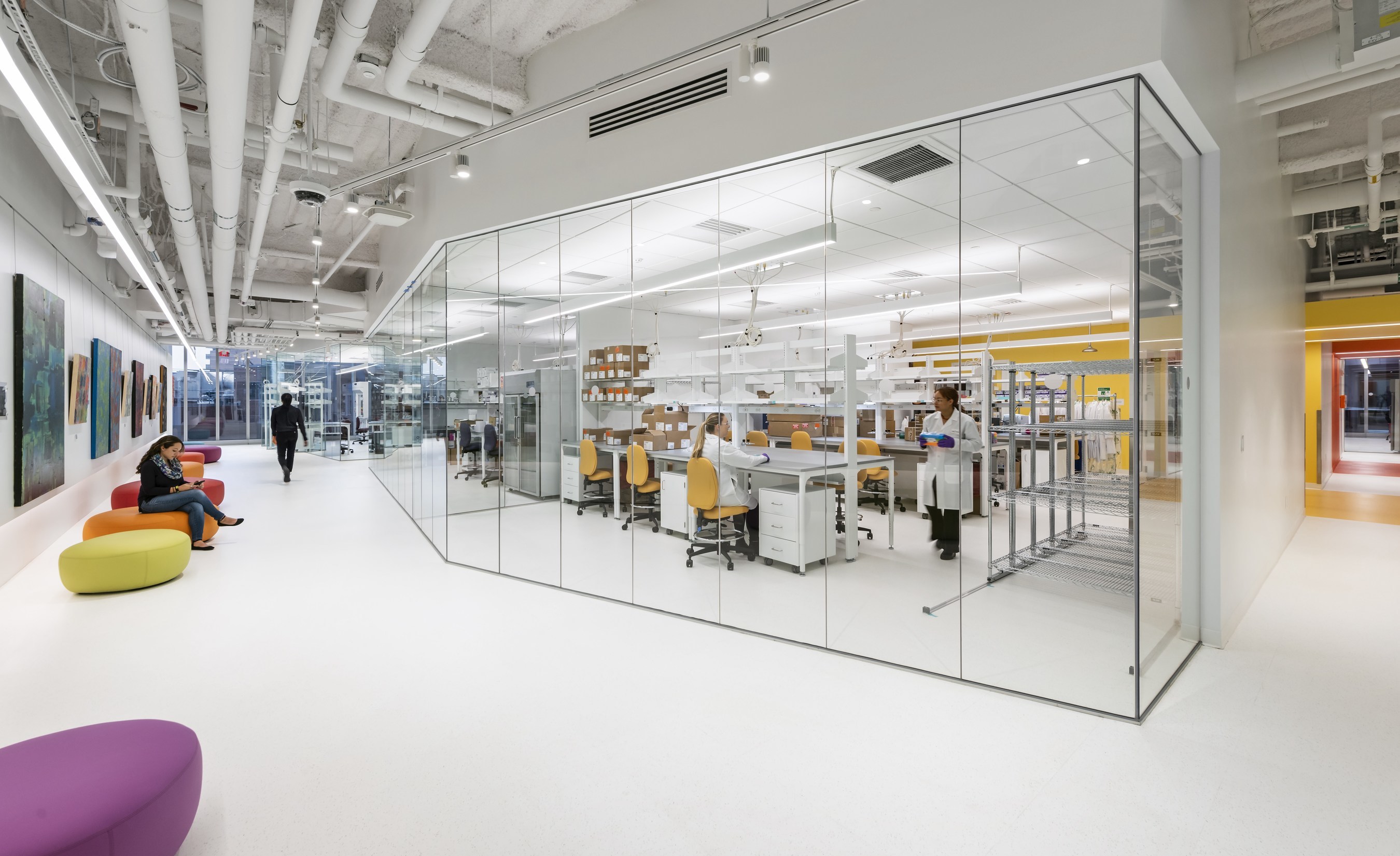
At LabCentral, we are excited when our startups give notice that they will be leaving, as our success is demonstrated by their growth. But LabCentral like most startup launchpads is built to enable early-stage companies to focus on their science and business development, leaving general operations to us.
Having watched hundreds of companies make the leap to independence, we know that even the most experienced startup leaders make blunders that lead to missed milestones, downtime, unnecessary spending, poorly designed space, and unnecessary staffing turnovers, all of which can set a company back months.
Here are the five things to keep in mind so you grow out of your incubator with operational grace:
1. It’s never too early to start planning – but don’t plan alone!
We half-heartedly joke, “Welcome to LabCentral. Let’s talk about when you’ll be leaving.” We want companies thinking about their transition early and provide move-out guidebooks to help companies in the process. While some incubators may not offer these resources, it doesn’t hurt to ask whether your facility provides support for your transition.
In addition, poor change management can be catastrophic for teams. We’ve seen startup leaders successfully prepare their teams for significant geographic moves without losing any employees, and other teams who have lost two thirds of their team by waiting too long to build buy-in. Transparency and change management are the primary factors at play here.
2. Your Project Manager is your conductor and your engine.
One of the biggest predictors of success for our transitioning startups has been whether a team has a dedicated person (not pieces of people!) responsible for their transition. Do not underestimate the time and resources this person needs. If necessary, bring in a consultant to support the transition.
3. Access your inner oracle. Plan. Plan. Then plan some more.
After congratulating a LabCentral resident for closing a $10M Series A, I asked about their hiring trajectory so we could support them with additional space. I was shocked to hear they had no staffing plan. (Hey investors – friendly advice — nobody should get $10M without a staffing plan.) That team struggled to deploy their capital effectively and moved two times within the next 24 months to get a properly outfitted space.
There is no biotech startup crystal ball (sorry), but the more you think about milestones, funding triggers, staffing plans, and your team’s approach to outsourcing, the better. These questions have all been considered by our transitioning startups and have played out in some very interesting ways:
- Plans to grow dramatically, but not for a year? Will your new space easily subdivide for subletting? Does your real estate owner/operator have additional space in development that aligns with your growth?
- Considering in-house manufacturing? Pick a geography suited for significant expansion.
- Adding significant chemistry to your team for in house QA/QC? Perhaps that gorgeous view on the 10th floor is not the best choice.
None of the things you plan will turn out quite how you imagine but thinking about your long-term strategy will build efficiency as you change course later.
4. Science is still your business, but you probably need more non-scientists.
You may not have noticed those people ordering coffee, stocking the printer, or applying for city permitting because your incubator provides these services. Evaluate both your current team and your new facility’s offerings.
The following are functions you may need to cover. You can do this in three ways: (1) Assign them to a current employee; (2) Make strategic additional hires; or (3) Contract this work out to operational service providers:
- Lab Operations: equipment installation/maintenance, inventory, PPE …
- Environmental Health & Safety: permitting, safety planning/training, wastewater, hazardous waste…
- Facilities: custodial, base building integration, general maintenance…
- Purchasing: orders, backorders, price negotiation, approval systems and order processing…
- Office Management: coffee, food, vendor management…
- Information Technology: hardware, software, ISPs, security…
- Shipping & Receiving
- Custodial Services
(Style points hint: LabCentral grads have had success hiring a lab manager early to serve as transition project manager, and then support the team as lab manager afterwards.)
5. Flexibility isn’t just for acrobats.
More time. Unexpected delays. Extra money. You cannot control process delays of these types, but you can control contingency planning. In addition to padding out timelines and budgets, we always advise companies keep a bench at LabCentral as a backup plan. Launchpads with rent-a-bench options make it easy to maintain a connection to working infrastructure as an affordable back up.
The following real and unexpected problems would have shut down transitioning LabCentral startups, if they did not keep contingency space at LabCentral:
- Cryo doesn’t work – where does the truck full of cells get stored?
- Occupancy delay of two weeks – fire department doesn’t like (something)
- Contracted EHS provider is not permitted to transport waste, bungled permit
- Flow cytometer on backorder – active experiment must be aborted
- Equipment won’t fit in the elevator – two weeks for a crane pick
- Vendor account set up not complete – no supplies until corrected
Winston Churchill once said, “Those who plan do better than those who do not plan, even though they rarely stick to their plan.” Just like most complex business transitions, moving a startup is never failproof, but smart planning and project management will dramatically increase your chances of success in seeing two steps ahead, and keeping a nimble approach to adjusting course.
About the Author

Krista Licata began supporting biotech startups at LabCentral in 2014, and now oversees all site operations teams in the LabCentral network. She returns to this role after spending 2020-2022 as interim Executive Director for the launch of LabCentral Ignite: LabCentral’s platform addressing gender and racial equity in the biotech industry. In addition to her work in operations, Krista has been Project Manager and consulted on buildouts of LabCentral’s expansion projects including the Pagliuca Harvard Life Lab, LabCentral’s 700 Main Street expansion, LabCentral 610, MIT’s The Engine, and served as the organizational lead for the initial product development and design stages of LabCentral 238.
Krista’s previous roles have been that of building efficiency and resources for organizations that are in transition and growing rapidly. She got the start-up bug in natural/specialty foods in brand, financial, and operations management as a co-founder or early hire. Prior to this, Krista worked with multiple non-profit organizations in the arts, education, and child advocacy. She is a Teach for America alumni and was proud to be selected as Besteiro Middle School’s Teacher of the Year by her administrators and peers. Krista holds a master’s degree in public administration from the Maxwell School at Syracuse University and a bachelor’s degree in natural resource management from Cornell University.
